A new report from the International Institute for Strategic Studies (IISS), Building Defence Capacity in Europe: An Assessment, warns that European NATO members face a challenging path in rebuilding their military capabilities to meet growing threats, particularly from Russia.
Launched at the IISS Prague Defence Summit, the report underscores the need for a sustained commitment to reversing years of underinvestment, particularly in light of lessons drawn from Russia’s full-scale invasion of Ukraine in 2022.
The report states that “rebuilding European defence capability in the face of the Russian threat is a complex, long-term undertaking which will require sustained political and financial investment by European NATO-member states.” Since the 2022 invasion, NATO has significantly increased its focus on deterrence and readiness, and European members have been working to address capability shortfalls across their defence-industrial bases. However, after “decades of neglect and underinvestment,” many critical gaps remain unaddressed, with progress being “mixed” at best.
Reflecting on recent efforts, the report observes that European defence spending has surged nearly 50% since 2014, but it cautions that this funding mainly compensates for years of past underinvestment rather than indicating robust future readiness. As the report highlights, “the recent surge in spending has effectively only brought spending levels up to where they would have been if defence had received consistent investment since 2009.”
Moreover, the report stresses that achieving stability in funding is critical, stating that “the use of non-core budgetary funds to supplement defence and bolster acquisitions creates issues for transparency and undermines the security of long-term funding.”
An area of concern is whether European NATO allies will be able to deliver the “long-term support – financial and otherwise – needed over the coming decades to lead to lasting change.” Defence industry constraints are evident, with key sectors struggling to meet current demand. The report underscores the need for stable financial support, as a lack of predictability in funding “limits industry’s ability to invest with confidence.”
While there has been a rise in private-sector involvement, regulatory hurdles and environmental, social, and governance (ESG) standards have complicated defence-sector investments. The report suggests that success would be bolstered if governments work to “‘normalise’ investment in defence, particularly at the venture-funding or small and medium-sized enterprise (SME) level.”
The report’s conclusions also touch on supply-chain resilience and security, observing that Europe’s defence industries are transitioning from “just-in-time” to “just-in-case” stockpiling strategies, but this shift has faced challenges. With European countries increasingly dependent on foreign suppliers for critical materials like gallium – essential for military systems – there is renewed focus on “onshoring and friendshoring” to reduce reliance on external sources. Additionally, the defence sector could benefit from broader European goals related to climate and digital resilience, particularly if these efforts align with investment in rare-earth recycling and secure sourcing.
Ultimately, the report casts doubt on whether recent gains will translate into lasting transformation, noting that “the jury is still out as to whether major European NATO allies will indeed provide the long-term support” necessary to close these capability gaps. While acknowledging positive trends, the report suggests that only with sustained and stable financial and industrial commitments will Europe be positioned to ensure its defence resilience in the face of future threats.




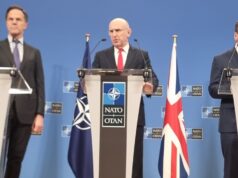
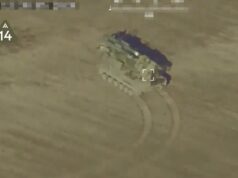

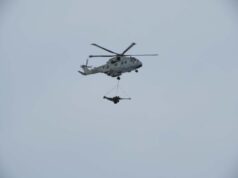


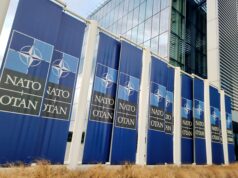
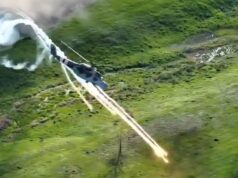


Stating the obvious
UK has been one of the worst culprits in allowing the disappearance of critical defence manufacturing capabilities.
Armoured vehicles
Naval guns and artillery barrels
Small arms.
Allowing BAE to buy up so much only to close it down was a big mistake. Only the US spends enough to sustain competitive private sector companies.( Even there, supply chains are stretched). Germany has succeeded in maintaining defence manufacturing, especially of land systems, despite a small domestic demand, by big export orders. Other countries- France, Italy, Spain- have maintained state controlled or owned defence suppliers.
The purchase of Sheffield Forgemasters shows what has to be done.
Absolutely
Depressing that there has been so much blindness over so many decades. I think I was a teenager when I first heard the argument that Britain needs to produce exportable weapons rather than specifically Uk centric requirements. Geez how that has come to haunt us as we have little left to even produce those specific weaponry we were so committed to for so long. What was left was wiped out by the ‘peace dividend’. Events since hardly encourages one to think that those in power are anymore aware of realities even if belatedly there has been some moves towards a consistent buying policy (just very small) and weapons that have some export ability. Still so much to do and reports today from Kiev that this Govt isn’t as committed as its words might claim hardly helps in believing their words when they have already been so deceptive and benefiting those closest to them have so far been the priority.
All true, many of us have are firmly in the camp of exportability in UK defence domestic procurement and have been for years.
Alas, it still doesn’t happen, ridiculous procurement decisions like Watchkeeper and Wildcat, purely to supply our small armed forces, drain the funds and slowly kill the industrial complex that supports it…
I read in Defense News that MBDA are pushing their newly announced truck-mounted version of FC/ASW as a short-term option for the European long-range land strike programme, ELSA, as some of us guessed they might. If we are looking at three countries starting manufacture within the next couple of years and maybe 6 countries buying, it could make a significant difference to deterrence.
Hmmm…an apparently well researched and written report. Wonder whether any politicians or bureaucrats will bother to pursue it, let alone act upon the recommendations? 🤔
…peruse…🙄 (autocorrect strikes again)
Yes it just starkly reveals how delusional, dismissive and two timing various Govts in Europe have been over defence in recent times sadly, what they say is pretty obvious in reality. Going to be scary times for Europe if as reported today something of the nature of the terms for peace in Ukraine come to pass. What a signal it will be, so we better hope Russia has been weakened substantially for many years while (if) we get our act together on this Continent. Trouble is I fear the likes of Trump, Musk and co will be falling over themselves to re open Russian markets enabling them to recover and threaten again without Europe being united or confident enough other than to roll over to more demands.
Given current geopolitical situation, believe ENATO would be well advised to collectively increase defence expenditures, simply to guard self-interests into the future.
Quite concerned that one of the terms of a RU-UKR peace treaty will be a pledge of indefinite UKR neutrality. Unfortunately, there will be no future BAOUKR, equipped w/ Challenger IV (or V) and protected by Tempest, flying CAP. Occasionally wonder whether the implosion of the Soviet Union was a clever ruse to encourage Western disarmament. 🤔 The 1990s seem to be nearly an eternity ago.😳😉
Well like I’ve said before I think it’s 5-12 on the clock ,Defence needs to be planned out now not tomorrow 😟
Any self respecting nation would ensure it not only had the means to protect itself but adequate reserves and a supply chain that could be increased rapidly. Sadly the U.K. no longer can achieve this without reliance on overseas companies.
To have a defence industry you have to have inputs like steel. And people to use the weapons. And a government with guts enough to say no to giving away your overseas military bases to your enemies. As we have none of that we may just as well let Putin in now
A defense industry requires consistent spending for R&D. The UK doesn’t do this with it’s sporadic spending/cutting with each change of government.
I think its just cutting and cutting, not sure I have seen any spending since Boris, or before Boris… Boris for all his various detractors was the Mayor of London that bought British (the previous mayor bought German buses – probably because it fattened his back pocket as the Germans never have minded paying bribes, indeed until very recently could even claim them against tax), he was the first PM to authorise a new British fighter plane since the TSR2 was destroyed (not just shut down but actively destroyed) by Labour in favour of buying a hugely inferior American machine – that turned out to not even be cheaper or delivered earlier. This country is a 5th world country, more corrupt than any other – including putins russia.